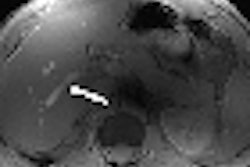In the U.K., 13% of general practitioners have reported in a survey that their patients referred for CT and/or MRI scans experience barriers in getting direct access to these diagnostic imaging exams.
This is one of many statements about denied or restricted access to a huge range of National Health Service (NHS) procedures, made in a survey of 300 general practitioners by online news magazine Pulse.
The survey detailed the extent to which rationing of treatments, which included vasectomies, nutritional supplements, hernia operations, and infertility treatments, have become within the NHS.
General practitioners were asked to indicate which treatments from a list of 20 were being restricted in the geographic area where they practiced medicine. The most frequently reported treatment denial was for varicose vein surgery at 55% of general practitioners, followed by nutritional supplements at 36% and infertility treatment at 29%.
Restrictions on referrals by general practitioners have been so severe that in one area the number of patients referred to a hospital dropped by 37% in the first quarter of fiscal year 2011/2012, compared with the year before, according to Pulse.
Restrictions to various surgeries also were reported, as well as treatments that could prevent surgery. A quarter of general practitioners said their patients were facing restrictions in access to obesity treatment and prevention, and 16% to routine blood glucose testing for diabetes.
Pulse conducted the survey as part of a new CutsWatch initiative to collate information across the U.K. on the impact of frontline NHS services being reduced as part of a national initiative to deliver 20 billion pounds of efficiency savings.



















